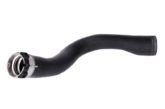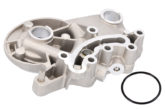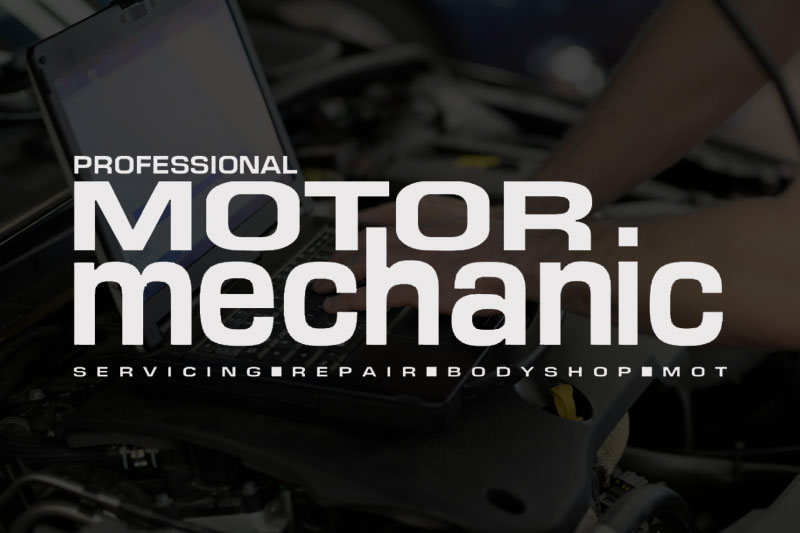
Myth 1: ‘I replaced the starter motor as it has burnt out’
After continued attempts at turning the ignition key with the engine turning over, but failing to start, the conclusion is frequently reached that the starter motor has failed. It is likely that during the attempted starting – ‘cranking’ – that the engine is getting slower when attempting to turn over. This is obviously due to the battery running down. This condition can have a devastating effect on the starter motor.
The impact of low-battery voltage and prolonged cranking will draw high current and, eventually, burn out the motor-low speed/high current. This is where it is often misdiagnosed as a starter motor failure. In some cases, even the warranty claim form that we receive shows the failure as “starter motor burnt out” when, in fact, the likely cause of the failure is poor battery condition, loose connection, corroded connection etc.
Myth-buster: The starter motor does not burn itself out!
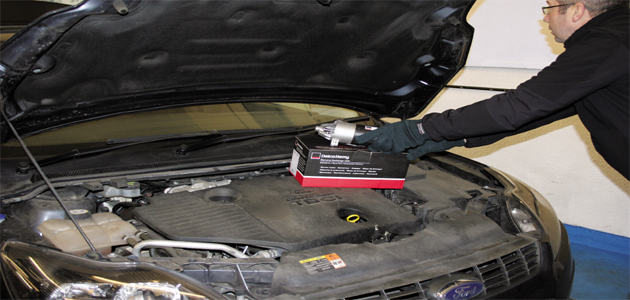
Myth 2: ‘I replaced my starter motor as it continues to run’
Another myth regarding starter motor failure is when the starter continues to run – stays in mesh – while the engine is running. The tell-tale signs of this condition will often be a whining noise and, in some cases, a burning smell. On removal of the starter motor, you’ll notice that the starter motor’s armature shaft and pinion will be a blue/straw colour due to overheating; this condition is called “over-run” – high speed/low current.
The likely reason for this type of failure is due to a sticking key switch or relay, resulting in a permanent electrical feed to the starter motor’s solenoid connection – energising terminal. Again, this is misdiagnosed as a starter motor failure. In some cases, even the warranty claim form again shows the reasons for failure as “starter motor burnt/continually runs” when, in fact, the likely cause of the failure is due to an external electrical feed to the solenoid.
Myth-buster: The starter motor cannot produce its own power.
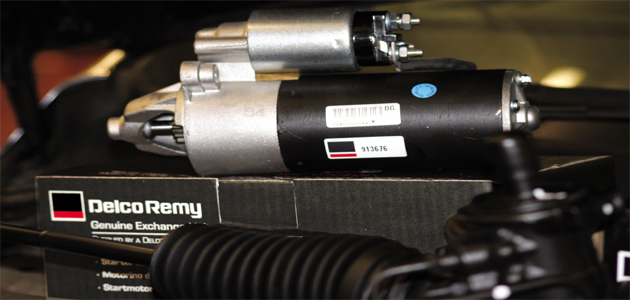
Myth 3: ‘I replaced the starter motor as it just clicks when the ignition key is turned, but the engine will not start’
The most common misdiagnosis for this is a faulty starter motor. As a result, the starter motor is simply replaced without any further investigation; however, it is extremely likely that the replacement starter motor will show the same symptoms as the original unit. The actual diagnosis can be any of the following: a bad battery or a bad connection to the battery; the main cable connection to the starter motor is loose, broken or corroded; or there is poor ground connection.
To correctly diagnose the root cause of the problem, you should check that the battery is in good condition as well as the connectors. You should also check the main cable to the starter motor as well as the vehicle ground connection. Please note that the clicking or continual clicking sound is from the starter motor’s solenoid. This happens when there is low-control circuit voltage and, because of this, the solenoid contact chatters, as there is insufficient voltage to hold the contact in.
Myth-buster: A clicking starter motor is usually a result of a poor connection elsewhere in the ignition system!
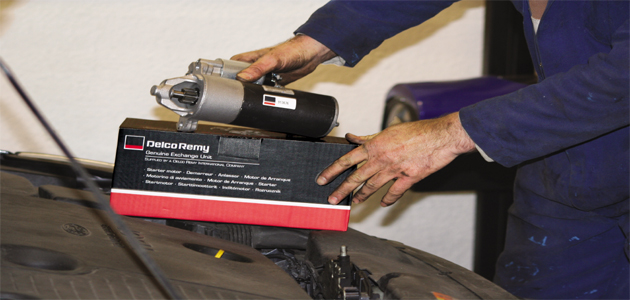
Myth 4: ‘If I hit the starter motor, it will start to work’
The modern starter motor is a complex, delicate component. Instead of wound copper coils and a heavy, thick outer frame, the starter motor has a delicate outer frame and internal permanent magnets. There is a common misconception that if, on attempted starting of the vehicle, the starter motor solenoid just clicks then the starter motor must be jammed and, if you give the starter a tap, it might free it.
This is certainly not the case and the likely reason for failure is due to low system voltage (bad battery/loose, poor connection – high resistance in the circuit). Please note that you should always check the battery first as it is the heart of the starting/charging system. In some cases, even the warranty claim form shows the reason for failure as “starter motor just clicks” when in fact the likely cause of the failure is due to poor battery condition. On inspection of these warranty returns, we have noticed an impact mark on the side of the starter motor’s body-frame and the internal magnet is broken in half.



